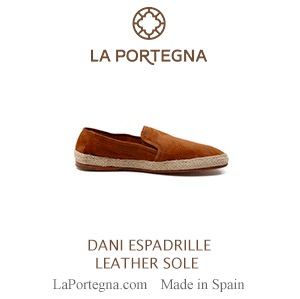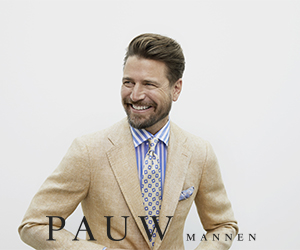The current state of Florentine perfumer Santa Maria Novella raises interesting questions about quality and product perception.
Earlier in the year myself and Luke were given a tour around the brand’s new manufacturing facilities in Florence, as well as a look behind the scenes at the stunning shop in the centre of town.
Santa Maria Novella has been expanding fast in recent years, particularly in Asia, and bought the new factory in 2000 in order to cope with the demand. It has now outstripped that one, and is buying another with a multi-million euro refurb.
There is much to admire in that expansion. It has largely been under Santa Maria Novella’s control, rather than through agents. The products have not mushroomed: there were two new fragrances in 2012, but they were limited editions and have not been redone. And staff in all the new shops or concessions must fly to Florence for training, even if they come from New Zealand.
But it has required a step change in production.
Years ago, the manufacturing was all done on site, which means in the magnificent Basilica of Santa Maria Novella in the centre of Florence. It’s a wonderful space, with a case for being the most beautiful shop in the world; there are domed ceilings, original wooden cabinets, and an on-site gardener curating unusual orchids.
But it’s not a place for industrial-level manufacture, indeed for machinery at all. Production was gradually moved out of the centre until it all ended up in the current building in the suburbs.
There, scale took over. Turbo emulsion machines, over 8ft-tall and working with 50kg drums of skin cream, made things much more efficient. Perfumes could be stored in pressurised metal tanks with precise measurements. It’s a far cry from the romance of the frescoed Basilica back in town.
But then such machines are 10-times bigger at other, international beauty companies. Those companies would never bother to produce so close to their traditional home. And far more importantly, the scale of production doesn’t necessarily make any difference to quality.
This is why I find the current state of Santa Maria Novella so interesting. They still do a lot of the production by hand – all of the scented wax blocks are poured individually, with the herbs being sprinkled in afterwards (see picture above). But they shouldn’t. It’s incredibly time-consuming and makes no difference to the quality of the product.
A lot of the packaging is done by hand, as well, something that Gianluca Foa of SMN (pictured above and below) emphasised. But again, does this really matter? It’s even debatable whether the packaging matters at all, let alone whether it’s done by hand. (Personally I’m prepared to pay for good packaging, particularly if it’s as nice as SMN’s.)
What Santa Maria Novella should emphasise is the quality points that do separate them from other perfume and beauty-product brands.
For example, anyone that has used an SMN soap will have noticed how it lasts 3-5 times longer than a regular soap. This is largely because it is aged – kept in a big temperature-controlled case and allowed to oxidise for 3-4 weeks. A lot of the water evaporates, making a more concentrated product.
(Above: the soaps being aged, and Gianluca showing one that is halfway through the ageing process)
Some of these processes have been replaced. The potpourri, for example, used to be aged for three months in terracotta jars. That was no better than doing so in modern vats, just more traditional, so it has been changed. But then the liqueurs are still stored in the original barrels. (Both shown below.)
Someone like SMN struggles a little bit to know which of these things to emphasise. Traditional techniques are a lot easier to push, but quality ingredients usually make more of a difference.
For me, it should be about clarity and transparency throughout. And I’m more than prepared to then buy in (to a certain extent) to the history, the family, and the frescoes.
I’ll do a separate post later on the history of SMN and the basilica itself
Photos: Luke Carby








































This is a really interesting post.
What determines somebody’s choice of fragrance? I like the smell? I like the brand? It makes me feel good? The maker I choose says a lot about who I am? I am a stickler for tradition? Authentic ingredients really matter to me? The bottle looks fantastic on my shelf? Made in the same way it was 100 years ago? A small artisan producing it by candlelight? It reminds me of my Dad/Uncle/childhood?
For me, if I like the smell, I would probably wear it. But surely it should be more complicated than that?
Nice article. I was wondering where you were going with it though. I bought my wife some of the latte corpo melagrano and can testify to the quality of the ingredients. And the smell on her skin is heavenly.
Simon,
I admire your bespoke safari jacket. I am considering having one made by my shirtmaker in a style similar to yours. I have a few questions. Is your jacket completely unlined, even the arms? I imagine sliding ones arms into an unlined linen jacket is less smooth than a half-lined linen suit and it could cut down on wear if they arms are lined. Any lining, though could defeat some of the purpose and make it more expensive as well. How has yours stood up to wear and how frequently do you use it?
Thank you.
Maybe best to leave this comment on the post itself?
Simon,
Please note that some of the products that SMN sells contain Parabens and other chemicals that are under chemical review in several countries. The evidentiary data on such chemicals is not without controversy.
-S
Thanks Sandeep. This is a big area and I know something SMN has done a lot on in recent years, though probably not worth getting into here
Wilco, but was just following your website’s instructions…
“For sartorial questions, please post a comment on the website. It does not have to be on a relevant post.”
Cool, yeah it doesn’t have to be but always helpful if it is
Alas, this push to expand has resulted in depressing changes. Something made in small batches and something made in big machines is NEVER the same, even if the formulae are (supposed to be) the same. And when big expansion is taking place, margins are king. For example, all of the old Dior perfumes, in spite of all their luxury marketing, have more in common with Domestos today than with their original juice. Everything at Guerlain equally destroyed.
The SNM store in Florence, which had the thrillingly contemplative hush of entering a unique and almost private sanctuary, had sadly been sexed up and opened up at my last visit, with the addition of purple-toned LED lighting straight from a classy TOWIE nightspot. (An ignominy also suffered by Guerlain, alas, in the quest to rebrand it as hip and happening.)
And the scent I’ve been wearing for years, Garofano (Carnation), does not smell the same, when I put it on it seems cold and antiseptic. It dries down okay, I guess, but in a way that means I can’t smell it. I suddenly noticed this when the bottles changed to frosted over a year ago. Luckily found some old non-frosted bottles in Rome this past summer so everything smelled like old (!) for a few months – both to appreciative others and, most importantly, to me – and then back to antiseptic new again. A politely delivered query on this matter to a salesman at SMN Piccadilly was received in a very unpleasant, aggressive way in the manner of “no one else has complained about this ((this was just after I noticed the change))… and we have royalty who wear our perfumes”, he added for enigmatic effect. As a 36-year-old man and not an impressionable, Instagram-addicted 13-year-old girl, and, for all he knows, potentially fourth in line to the Belgian throne, I don’t care who else wears the scent, MY scent. And a suspiciously defensive attack leaves an unfortunate bad taste.
It might be time to see if any final stock can be tracked down before having to wish this special scent goodbye.
Thanks. You aren’t necessarily right on bulk never being the same as small batches (in many industries, bulk improves quality) or the fact that bulk leads to a focus on margins.
I’m also surprised at your experience, as these changes at SMN were made several years ago. However, I agree the customer service sounds poor.
I like the Patrick Bateman-look! 😀
I think you should keep a bottle of Elixir D’Edinburgo to hand and force a teaspoonful down the throats of naughty posters. It’s quite the nastiest liqueur in history.
Thank you for the tour. I visited several years ago when I was in Florence. I’ve been using shaving cream, before/after cream and soaps since the late 90’s. I’ve noticed that some of the packaging has changed (jars into plastic tubes most notably). Fortunately the quality for me has remained the same!
Best regards
How do you think SMN compares to other niche perfumers like F. Malle or Villoresi? Have you ever tried Profumum Roma?
It’s perhaps not quite at that level, but quality is often not the most important thing in perfumery – it gives access to a greater range of scents often, but that doesn’t necessarily mean you’ll like them more, or they are in any objective way ‘better’